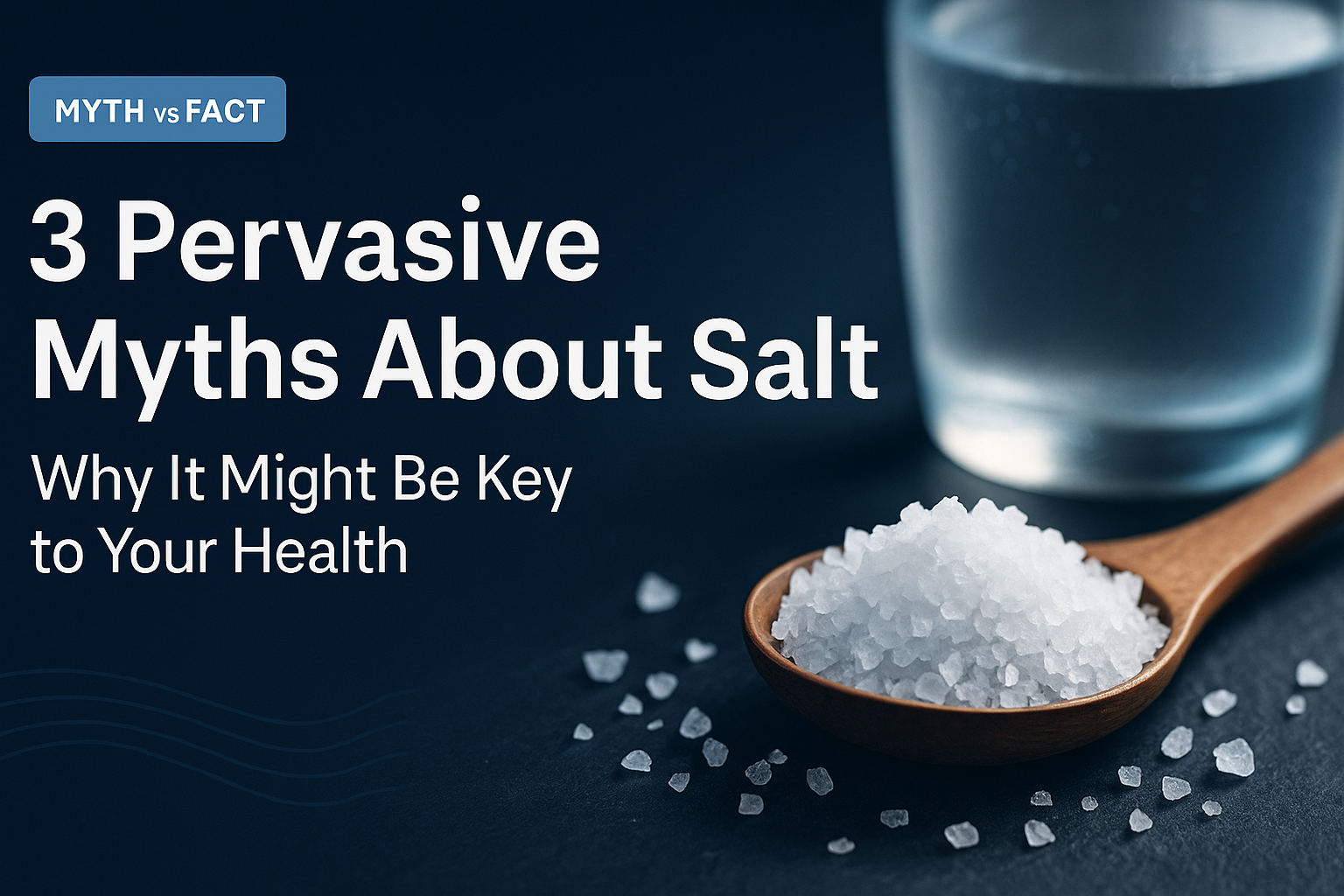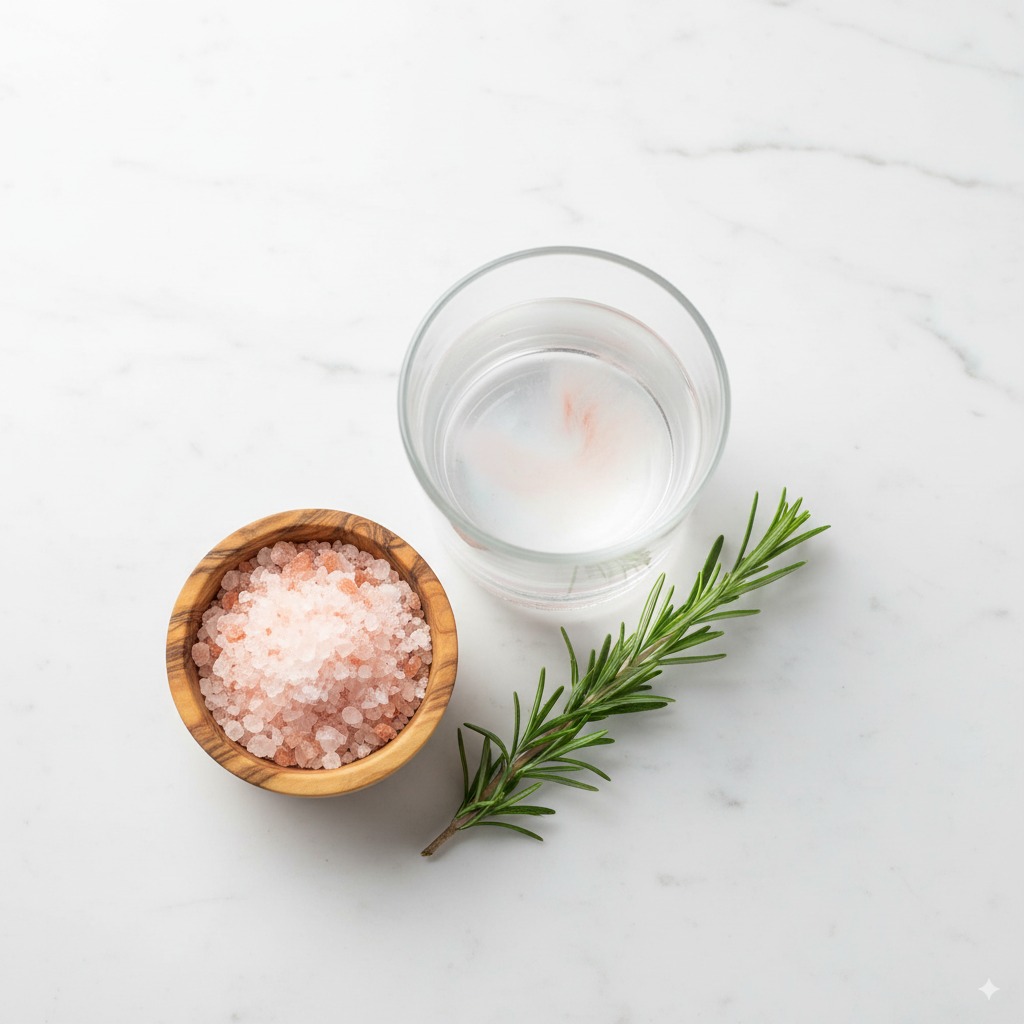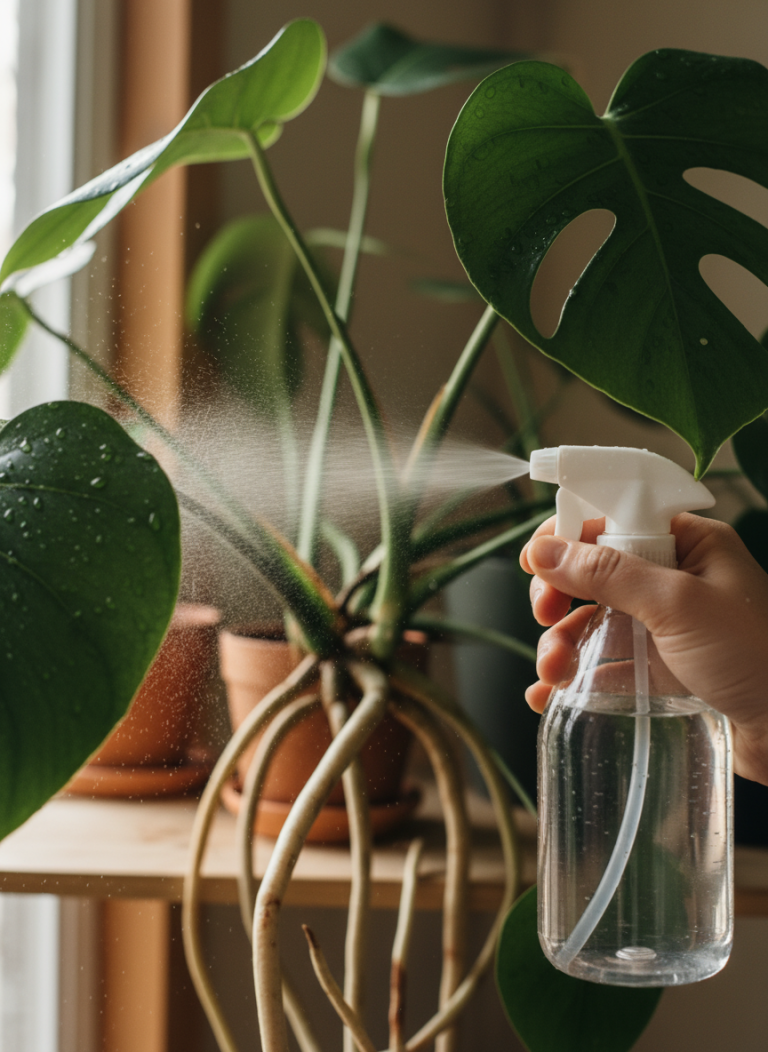3 Pervasive Myths About Salt: Why It Might Be Key to Your Health
3 Pervasive Myths About Salt: Why Your Body is Craving What You've Been Taught to Fear

For decades, we’ve been given a clear directive from doctors, health gurus, and public health campaigns: "Cut back on salt." We've been told it's the silent driver of high blood pressure, a burden on our kidneys, and an enemy to our overall well-being. Dutifully, many of us have banished the salt shaker, checked labels for sodium content, and opted for bland, low-sodium meals. But what if, after all that effort, you still feel tired, bloated, and far from your best? What if the real culprit has been hiding in plain sight all along?

It's time to put salt on trial and re-examine the evidence. The truth is, we've been blaming the wrong villain. This article will debunk the three biggest myths about salt and reveal how incorporating the right kind of salt into your daily routine—starting with a simple glass in the morning—can be one of the most transformative things you do for your health.
Myth #1: "Salt is the Primary Cause of High Blood Pressure and Kidney Disease."
This is the most deeply ingrained myth of all, yet it oversimplifies a complex biological process. While it's true that excessive sodium from highly processed foods can contribute to health issues, it is far from the primary cause for most people. The real drivers of chronic inflammation, insulin resistance, and vascular damage—conditions that directly lead to hypertension and kidney strain—are excessive sugar and refined carbohydrates.
When you consume sugars and simple starches, your body releases insulin to manage blood sugar levels. Chronically high insulin levels lead to inflammation, cause your arteries to become stiff, and signal your kidneys to retain more sodium and water, which directly raises blood pressure. We often blame the salt on the potato chips, but it’s the highly processed carbohydrate of the chip itself that is doing the most damage.
This is a common blind spot in modern nutrition. It’s similar to the confusion surrounding post-workout nutrition, where many people reach for sugary "recovery drinks," not realizing they might be undermining their muscle repair efforts. Understanding which post-workout foods to rethink is crucial for progress, and the same critical thinking must be applied to our daily salt intake. By focusing solely on salt, we ignore the much larger, more destructive impact of the modern Western diet.
Myth #2: "All Salt is Created Equal (and Equally Bad)."
This misconception is fundamentally dangerous because it lumps a vital, life-sustaining nutrient in with a highly processed industrial product. There is a world of difference between refined table salt and unrefined mineral salt.

- Refined Table Salt: This is the white, free-flowing salt you find in most shakers and processed foods. It has been chemically stripped of all its beneficial trace minerals, bleached, and heated to extreme temperatures. What’s left is pure sodium chloride, often with anti-caking agents and other additives. It is nutritionally empty and can disrupt your body's delicate mineral balance.
- Unrefined Mineral Salt: This is salt as nature intended it. Harvested from ancient sea beds or pristine oceans, it retains a rich spectrum of over 80 essential trace minerals and electrolytes, including potassium, magnesium, and calcium. These minerals work synergistically with sodium to support countless bodily functions, from nerve signaling and muscle contraction to optimal cellular hydration.
When choosing your salt, you are choosing your mineral source. For a reliable, mineral-dense option, Himalayan Pink Salt is an excellent starting point, known for its purity and robust mineral profile. For those who also appreciate a culinary touch, a high-quality, flaky sea salt like Maldon Sea Salt provides a clean taste and the essential minerals your body needs to thrive.
Myth #3: "If I Feel Bloated, I Should Immediately Cut Out Salt."
This is perhaps the most counterintuitive myth. While a sudden binge on processed, salty food can cause temporary water retention, chronic bloating and puffiness are often signs of mineral imbalance and cellular dehydration, not excess salt.
When your body doesn't receive enough essential minerals (including sodium), it enters a state of alert and begins to hold onto water as a survival mechanism. This is why a low-sodium diet can sometimes make bloating worse. The solution is not to eliminate salt but to provide your body with the balanced minerals it needs. When you drink a glass of warm water with unrefined salt, you are replenishing your body's electrolytes. This signals to your cells that resources are plentiful, allowing them to release the excess water they've been holding. The result is often a visible reduction in bloating and a feeling of lightness.
The Simple Solution: Your New Morning Ritual
Harnessing the benefits of salt is remarkably simple. It doesn't require expensive supplements or complicated protocols.
- Prepare Your Glass: Upon waking, fill a glass with 250ml (about 8.5 oz) of warm water.
- Add the Right Salt: Add one to three generous pinches of your chosen unrefined mineral salt. Stir until it's mostly dissolved.
- Drink and Hydrate: Drink it on an empty stomach, before coffee or breakfast.
This simple act can be a cornerstone of a powerful morning routine for better energy. Much like the popular and effective practice of drinking apple cider vinegar daily, morning salt water works by optimizing your body's internal environment before the demands of the day begin. It rehydrates your cells, replenishes electrolytes lost overnight, supports adrenal function, and can even improve digestion.
Stop fearing salt and start understanding it. The true enemy to your health isn't a natural, mineral-rich crystal from the earth; it's the processed, sugar-laden diet that modern life has pushed upon us. By making one small, intentional change to your morning, you can begin to give your body what it’s truly been asking for. The change you feel might just surprise you.




